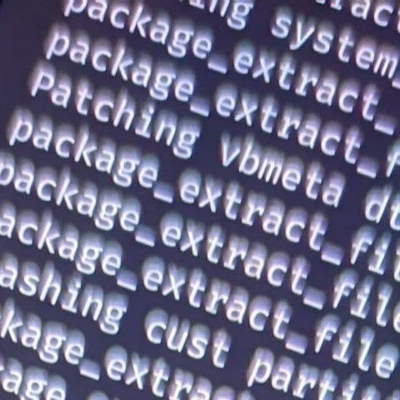cross-posted from: https://sh.itjust.works/post/17506000
I am not satisfied with Linux’s security and have been researching alternative open source OS for privacy and security So far only thing that’s ready to use is GrapheneOS (Based on Android) but that’s not available on desktop (Though when Android release Desktop mode it may become viable)
Qubes OS is wrapper around underlying operating systems, so it doesn’t really fix for example Linux’s security holes it just kinda sandbox/virtualize them
OpenBSD is more secure than Linux on a base level but lack mitigations and patches that are added to linux overtime and it’s security practices while good for it’s time is outdated now
RedoxOS (Written in Rust) got some nice ideas but sticks to same outdated practices and doesn’t break the wheel too much, and security doesn’t seems to be main focus of OS
Haiku and Serenity are outright worse than Linux, especially Haiku as it’s single user only
Serenity adopted Pledge and Unveil from OpenBSD but otherwise lacks basic security features
All new security paradigms seems to be happening in microkernels and these are the ones that caught my eyes
None of these are ready to be used as daily driver OS but in future (hopefully) it may change
Genode seems to be far ahead of game than everything else
Ironclad Written in ADA
Atmosphere And Mesosphere Open Source Re-implementation of Nintendo Switch’s Horizon OS, I didn’t expected this to be security-oriented but seems like Nintendo has done a very solid job
Then there are Managarm, HelenOS, Theseus but I couldn’t figure out how secure they are
Finally there is Kicksecure from creators of Whonix, Kicksecure is a linux distro that plans to fix Linux’s security problems
if you know of any other OS please share it here
Iirc microkernels have been the future since before Linux existed. There was a bit of a flame war between Linus and the guy who wrote the MINIX kernel about how being monolithic would be the death of Linux.
GNU Hurd also wanted to show the world how good microkernels could be, but sadly never got off the ground.
I’m not saying microkernels are bad, but I do wonder if there’s some reason we don’t see them out in the wild much.
It’s likely because of the extra complexity involved in microkernels. Especially like the Hurd, which really didn’t take off because it was too ambitious and Linux was finished faster.
This old fart remembers those discussions from the old Usenet days. You are correct and I agree. These claims are not new.
More info on Atmosphere as I find it fascinating that an OS created for a gaming device got such tight security:
https://www.reddit.com/r/emulation/comments/hygtnx/mesosphere_opensource_nintendo_switch_kernel_now/
“It is a completely unique microkernel with a cooperative (non-preemptive) scheduler. The kernel is secure – so far as I can tell (as a reverse engineer and hacker), it has zero security bugs. They throw out years of backwards compatibility (they’re not POSIX/UNIX), and they really, really benefit from it from a security and modularity PoV. Horizon’s the only meaningful RTOS with a microkernel that I’m aware of (other than Fuschia). Everything’s in userland – filesystems, gpu (and other device drivers). The OS is capability-based and conceptually all about lots of different processes/drivers (“system modules”) that host microservices. The fact that Nintendo designed such a rock-solid, modular, custom operating system for their consoles fascinates me.”
“IPC is the hottest hot-path in a microkernel, correspondingly Nintendo marked every function involved in IPC as attribute((always_inline)), this was kind of a huge pain to reverse engineer as a result. In addition, Nintendo implemented “SvcReplyAndReceive” as a single system call that allows a microservice server process to reply to and receive a new message in one invocation. That said, there’s actually less overhead than you think. Past of why FUSE is slower than a kernel driver for FS is because FUSE has to talk to the kernel to do filesystem stuff, so when you read a file you have your process -> FUSE -> kernel -> hardware. In comparison, on Horizon the kernel is completely uninvolved in filesystem management (it doesn’t even have the sdmmc hardware mapped). Thus processes will do process -> FS system module process -> hardware.”
“In Horizon, everything is very distinctly not a file. There’s no global filesystem paths the way that unix/linux have special /dev/whatever. Pipes don’t exist in Horizon – all IPC is done via the horizon ipc (“HIPC”) protocol. UNIX/POSIX have stuff like fork() and child processes…but creating a process is an incredibly privileged operation in a capability-based operating system. Fork() is impossible to implement in Horizon, all threads are created via SvcCreateThread() instead. Child processes aren’t a thing that exist.”
well, doesn’t it make sense when the business-model is to recoup R&D cost of the console with expensive games?
DRM becomes much harder once you can’t trust the system anymore.Nintendo tried to lock the system down, and got fucked by NVIDIA.
I didn’t know Nintendo subsidize their hardware like Sony and Microsoft, as their hardware seemed overpriced to me for what they offer
And small percentage of gamers are on PC and even smaller percentage would emulate games, even without exclusives most casual gamers seem to prefer consoles so I think Nintendo is overreacting in that aspect though for pirating/jailbreaking switch devices themselves yeah maybe that’s why Nintedo care
Who is subsidising it? You mean a loss-leader?
Previous consoles have been loss-leaders, the original switch isnt. Im not sure about the new gen switch, but considering the success of the first one, i doubt it is.The manufacturer’s suggested retail price in the U.S. is $299.99. As we have stated before, unlike Wii U, the Nintendo Switch price point was set to ensure that the hardware is not basically sold at a loss
https://www.nintendo.co.jp/ir/pdf/2017/170201_2e.pdf page 15
I meant Sony and Micorsoft were selling Playstation and Xbox at loss, profiting from games instead
Nintendo doesn’t seem to be selling their Hardware at loss so probably profits from hardware, actually considering their hardware (which is weaker than even midrange android phones) they probably sell at good profit margin
I feel like a lot of this is driven by a bias towards the unknown. You don’t know all the security issues in something new or even something old that doesn’t get the same level of testing as Linux.
I would trust security hardened Linux over all of the suggestions any day of the week. Better the devil you know.
While that’s true for mitigations, one system can be more secure than another by design
Things like an OS that’s designed with sandboxing, more clean codebase that’s auditable, permissions, … in mind is more secure than an OS that later adds them as an afterthought
Or at least if added later they should be done properly
iOS and Android are way more secure than Linux (And no Android isn’t just linux) cause they were designed in much later era with better security practices in mind
Even MacOS and Windows’s security are objectively better than linux’s even though they started with same security mindset, the problem is they are not open source
Those things were “added later” to create iOS and Android, they aren’t from scratch systems. iOS especially shares a large portion of its code base with macOS (much of which is open source).
I think we have different definitions of security. Your definition may be more theoretically secure, in your mind, for the novel and interesting solutions. My definition is about a hardened, time-tested solution.
The idea of a clean code base only existed for the original writers… most of the time.
Linux is secure, skill issues if you disagree






